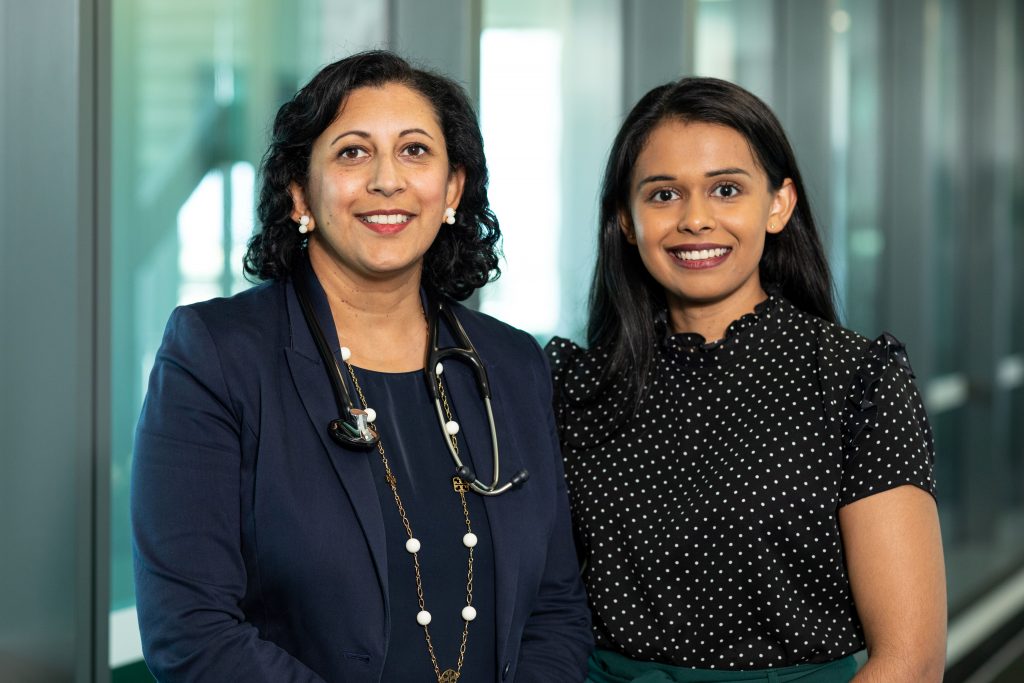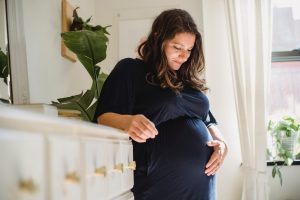A share of more than $1 million worth of research grants from The Hospital Research Foundation Group will go towards helping people with chronic kidney disease (CKD) navigate the enormously complex decisions throughout pregnancy.
Women with known CKD are often told pregnancy is “too dangerous” for mother and baby, but this is based on the subjective opinion of clinicians, rather than an objective analysis of risk.
Central Adelaide LHN researcher Associate Professor Shilpa Jesudason, at the Royal Adelaide Hospital, has been awarded a research grant to develop and evaluate an evidence-based “toolkit” for pregnancy-related care.
Developing the toolkit
Up to three per cent of pregnancies are affected by CKD, which significantly increases the risks of serious complications such as preeclampsia and premature birth. Safely planning and managing their high-risk pregnancies is a challenging process for CKD patients.
“Women can often be quite confused and distressed by the decisions they have to make around pregnancy,” A/Prof Jesudason said.
Previous work from A/Prof Jesudason’s Parenthood and CKD Research Group revealed that only 26 per cent of Australian women with CKD felt sufficiently educated about pregnancy and 45 per cent felt their control of decision-making was lost. Their findings also uncovered fundamental questions about whether they should have a baby or how the health of their baby would be affected by their CKD.
Over the next two years, the researchers will develop the “Kidney Mums Toolkit,” which will be informed by robust data on risk stratification, clinician and patient preferences and co-designed with consumers.
National kidney failure and perinatal datasets, along with data from seven hospitals in SA and interstate, will provide the basis for a prediction tool that calculates the likelihood of adverse events affecting the mother, her kidneys and her baby.
Further development of the toolkit will be based experiences of clinicians, patients and their partners.
A discrete choice experiment study will help the researchers to understand the priorities that influence the choices that clinicians and patients make in the context of maternal CKD. This kind of study is used to understand the drivers of decision-making by asking participants to state their choice among different hypothetical scenarios.
The researchers will then evaluate the toolkit’s impact on experiences and outcomes in real-world clinical settings and perceptions of pregnancy risk, as well as its effectiveness in aiding decision-making, and parenthood outcomes.
The impact
A/Prof Jesudason expects the project to transform the lives of Australian women living with CKD who wish to achieve motherhood.
“What we’re trying to do it generate really solid data so that we can help both clinicians and patients navigate through some of this challenging decision-making, [so that] we can reduce variability in care and we can improve the patient experience,’ she summarised.
This study is possible thanks to fundraising from The Hospital Research Foundation Group.
“Improving the health and wellbeing of women and their families is a huge area of interest for our supporters, which also helps give our children the best start for a bright and healthy future,” said the group’s CEO Paul Flynn.
“We wish to extend a huge thank you to our generous donors, fundraisers and ticket buyers in the The Hospital Research Foundation Home Lottery for enabling these grants.”
More about the project
To find out more about pregnancy and CKD, read this article on The Hospital Research Foundation Group website.



